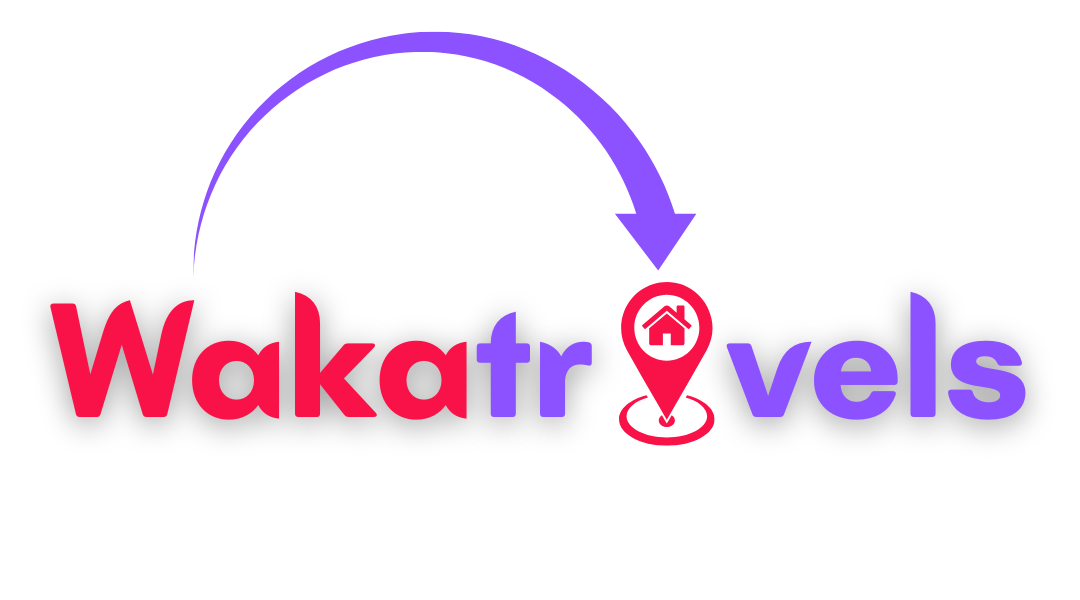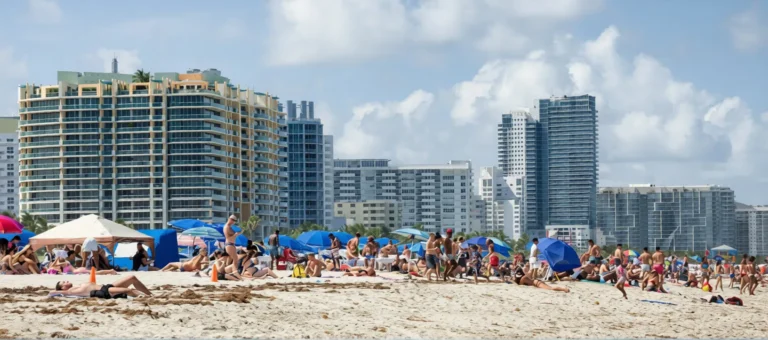
There’s a specific kind of panic that washes over you when you’re scrambling for last-minute accommodations. I’ve been there—standing in an airport, staring at my phone in disbelief as the booking app loads prices that could fund a small expedition to Antarctica. Last summer in Barcelona, after a friend’s wedding ran late (and several glasses of cava ran even later), I found myself stranded without a room when my original hotel reservation expired at midnight. What followed was a desperate two-hour odyssey through the Gothic Quarter that taught me everything I never knew I needed about last-minute hotel booking.
The irony? Finding exceptional last-minute hotel deals isn’t about luck—it’s about strategy. And contrary to what your anxiety might whisper in those moments of desperation, waiting until the eleventh hour can actually work in your favor. Hotels would rather fill rooms at a discount than leave them empty, and savvy travelers can leverage this hospitality truth into substantial savings.
Let me walk you through the art and science of securing those elusive last-minute accommodations without the usual stress, exorbitant costs, or questionable quality that often comes with desperate decisions.
Understanding the Psychology of Last-Minute Hotel Booking
Before diving into tactics, it helps to understand the hotel industry’s perspective. Hotels operate on a simple principle: an empty room generates zero revenue. As check-in time approaches, unsold inventory becomes increasingly valuable to offload—even at a steep discount.
This creates what I call the “desperation curve,” where room prices might actually drop the closer you get to your stay date, contrary to conventional wisdom about booking ahead. But this curve isn’t universal—it fluctuates wildly based on seasons, local events, and destination type.
I learned this lesson the expensive way during a conference in San Francisco, when waiting until the last minute meant paying triple the normal rates. The city was flooded with tech professionals, and hotels knew exactly what they were doing. Meanwhile, a random Tuesday in Phoenix during summer off-season yielded a five-star resort at the price of a roadside motel.
Timing Is Everything: When to Strike for the Best Deals
Let’s dispel a myth right away: last-minute doesn’t necessarily mean “day of.” In the hotel world, anything within a 72-hour window counts as last-minute, and this is often where the sweet spot lies. Here’s my rule of thumb for maximum savings with minimal stress:
- 72-48 hours before check-in: Start monitoring prices but don’t commit yet
- 48-24 hours before: The primary booking window where you’ll find the best balance of choice and price
- Under 24 hours: Deepest discounts possible, but selection becomes increasingly limited
During a road trip through New England last fall, I experimented with this timing theory. Booking two days in advance consistently yielded rates 30-45% lower than the standard prices, while maintaining decent room options. When I pushed to same-day bookings in less touristy areas, discounts occasionally hit 60%—though I did once end up in a room suspiciously close to the ice machine that hummed with all the subtlety of a small aircraft.
Essential Tools in Your Last-Minute Arsenal
After years of both triumphant victories and humbling defeats in the last-minute hotel wars, I’ve assembled what I consider the definitive toolkit:
Specialized Last-Minute Booking Apps
- HotelTonight: The pioneer in this space remains my go-to for urban destinations. Their “Geo Rate” feature has saved me hundreds when booking from within a specific neighborhood.
- One Night: Perfect for scoring luxury rooms at a fraction of their normal cost, though selection is limited to partner hotels.
- Hopper: Not exclusively for last-minute bookings, but their price prediction algorithm has proven eerily accurate for determining whether to book now or wait.
Traditional Booking Platforms with Last-Minute Sections
- Expedia: Their “Last-Minute Deals” section sometimes outperforms specialized apps, especially for international destinations.
- Booking.com: Their mobile app often releases exclusive last-minute deals not available on their website.
- Hotels.com: Their rewards program (stay 10 nights, get 1 free) stacks with last-minute discounts, essentially doubling your savings.
Membership Programs Worth Joining
After a particularly desperate night in Chicago when every reasonably priced room was booked, I’ve become religious about joining hotel loyalty programs. Most are free and offer members-only rates that can be substantially lower than public offerings, especially for last-minute bookings.
Marriott Bonvoy, Hilton Honors, and World of Hyatt all offer instant enrollment and immediate benefits. I’ve seen members-only rates up to 25% below standard prices, with the added benefit of occasional room upgrades.
The Direct Approach: Calling Hotels Works (Sometimes)
Digital tools are convenient, but there’s a decidedly old-school tactic that’s saved me more than once: actually calling the hotel. This works particularly well:
- After 6 PM on the day of your stay
- When dealing with independent hotels rather than chains
- During obvious off-season periods
- When you can reference a rate you’ve seen elsewhere
Last winter in Denver, after finding a decent rate online, I called the hotel directly and simply asked: “Do you have any special rates available for tonight?” The friendly desk manager offered me a rate $40 below what I found online, plus threw in free parking. Why? Because direct bookings save them the commission they’d otherwise pay to online travel agencies.
The key is being polite, flexible, and direct about what you’re looking for. Mentioning competitor rates without being demanding has worked wonders for me.
The Negotiation Playbook
If you do decide to call hotels directly, having a negotiation strategy elevates your chances of success. Here’s my script that’s yielded results more often than not:
- Start with: “I’m looking for a room tonight, and I’m wondering what your best available rate might be?”
- Once they quote a price, respond with: “I appreciate that. I’ve been looking around and found similar rooms for [X amount less]. Would you be able to match that or offer any available discounts?”
- If they can’t lower the rate, pivot to: “I understand. Are there any complimentary upgrades or additional amenities you could include?”
This approach secured me a corner room with a view in Nashville after a cancelled flight, at the same price as their standard offering. The front desk has more authority than most people realize—especially during low occupancy periods.
Location Strategy: The Neighborhood Shift Technique
One tactic that’s served me particularly well is what I call the “neighborhood shift”—looking just outside the prime tourist area or business district. In most major cities, moving just 1-2 miles from the center can cut rates dramatically, even on short notice.
In London last year, shifting from Westminster to Southwark saved me nearly £100 per night on a last-minute booking, with just a 15-minute scenic walk across the Thames separating me from the major attractions. In New York, choosing a hotel in Long Island City instead of Midtown Manhattan meant better accommodations at half the price and just a quick subway ride to all the action.
This approach works exceptionally well when combined with ride-sharing apps or good public transportation. The modest transportation costs are easily offset by accommodation savings.
![Insert image of map showing price differences between neighborhoods]
When Last-Minute Actually Doesn’t Work
I’d be doing you a disservice if I didn’t mention the exceptions to the last-minute approach. Through bitter experience, I’ve learned that waiting until the last minute is a terrible idea when:
- A major festival, conference, or sporting event is happening
- You’re traveling during peak holiday periods (Christmas in New York, for example)
- You’re visiting a destination with limited accommodation options
- You have very specific needs (must be pet-friendly, accessible features, etc.)
During the SXSW festival in Austin, I once paid more for three nights in a mediocre hotel than my entire week-long stay in London the month before. Some events simply consume all available inventory, eliminating any leverage for deals.
The Backup Plan: Always Have One
Even with all these strategies, sometimes things just don’t work out. The prudent last-minute traveler always has a safety net. Mine includes:
- Having at least one backup booking with free cancellation when possible
- Knowing which hotel chains have 24-hour desks for truly late arrivals
- Familiarizing myself with alternative accommodation types in the area (hostels, aparthotels, etc.)
- Having a ride-sharing app ready to take me to accommodations further afield if necessary
During a trip to Miami during spring break (rookie mistake), my careful plans collapsed as everything within my budget was booked. My salvation? A hotel by the airport with a free shuttle to the nearest metro station. Not ideal, but significantly better than sleeping in the rental car.
Putting It All Together: A Real-World Example
Let me walk you through how this played out recently. On a business trip to Chicago that unexpectedly extended by two days, I found myself needing accommodations during a busy conference week:
- At 48 hours out, I checked HotelTonight and standard booking sites to establish baseline prices ($350+ for decent options).
- I set price alerts on Hopper, which suggested waiting might yield better rates.
- At 24 hours out, I made a fully refundable backup booking through Hotels.com ($289, acceptable but not great).
- That evening, I checked HotelTonight again and found a boutique hotel for $199.
- Before booking, I called them directly, mentioned the HotelTonight rate, and asked if they could do any better for a direct booking.
- Result: $179 night with an upgrade to a corner room, saving nearly 50% off the initial rates I saw.
The entire process took perhaps 20 minutes of active effort spread over two days—a small investment for substantial savings.
The Psychology of Stress-Free Last-Minute Booking
Perhaps the most valuable lesson I’ve learned through years of last-minute bookings is psychological: embracing flexibility reduces stress exponentially. When you’re mentally prepared to stay in different neighborhoods or slightly different accommodations than initially planned, the entire process becomes an adventure rather than an ordeal.
I no longer panic when plans change unexpectedly. Instead, I see it as an opportunity to experience something new, often at a discount. That mindset shift alone has transformed last-minute travel from anxiety-inducing to actually enjoyable.
The truth is, I’ve discovered some of my favorite hotels through last-minute necessity rather than careful planning. That quirky boutique hotel in Chicago’s West Loop? Never would have found it without a cancelled flight. The historic property in Montreal’s old town? Only available because I needed to extend my stay unexpectedly.
Conclusion: The Last-Minute Advantage
Last-minute hotel bookings needn’t be the stress-inducing gamble many travelers fear. With the right approach, they can actually enhance your travel experience while being gentler on your wallet. The key components to remember:
- Timing your booking within the 72-hour window for optimal balance of choice and savings
- Leveraging specialized apps alongside traditional booking platforms
- Considering location flexibility to dramatically expand your options
- Understanding when last-minute booking won’t work (and planning accordingly)
- Maintaining a flexible mindset that turns potential stress into adventure
The next time you find yourself needing accommodations on short notice, take a deep breath and remember: the hotel industry’s need to fill rooms aligns perfectly with your need for a place to stay. You just need to know how to play the game.
Now if you’ll excuse me, I need to check HotelTonight—I just decided to extend my stay in Chicago by another day.
Frequently Asked Questions
How far in advance is considered “last-minute” for hotel bookings?
In the hospitality industry, anything within 72 hours of check-in is generally considered last-minute, though the most significant discounts often appear within the 48-24 hour window.
Do hotels really lower prices at the last minute?
Yes, many hotels do reduce rates as check-in time approaches if they have unsold inventory. This practice is known as “yield management” and is designed to maximize revenue by selling rooms at some price rather than leaving them empty.
What’s the best day of the week to find last-minute hotel deals?
Sunday through Tuesday typically offer the best last-minute deals for business hotels, while Thursday and Sunday are often optimal for resort properties. Weekend rates in business districts can drop significantly.
Will hotels match prices I find on booking sites?
Many hotels have price-matching policies and prefer direct bookings to avoid paying commissions to online travel agencies. Always ask politely if they can match or beat a rate you’ve found elsewhere.
Is it better to call hotels directly or use booking apps for last-minute deals?
Both approaches have merit. Apps provide convenience and a broad selection, while direct calls can sometimes yield better rates or room upgrades that aren’t available online.
How can I tell if an event will affect hotel availability?
Check local event calendars, convention center schedules, and sports venue calendars for your destination. Even medium-sized conferences can dramatically impact hotel availability and pricing.
Are last-minute deals better for luxury hotels or budget properties?
Luxury hotels often offer the most dramatic percentage discounts at the last minute, sometimes up to 50-60% off rack rates. Budget properties tend to have more modest reductions but maintain steadier pricing overall.
What’s the latest I should try to book a hotel?
Most hotels stop releasing inventory to online booking platforms 4-6 hours before check-in time. For same-day bookings later than this, calling directly is usually your only option.
Do loyalty program memberships help with last-minute bookings?
Yes, hotel loyalty programs often provide members-only rates and increased availability, even for last-minute bookings. Many programs are free to join and offer immediate benefits.
Can I get better deals on longer last-minute stays?
Absolutely. Hotels are often more willing to discount multi-night stays, even at the last minute. Always ask about extended stay rates if staying more than one night.
Top Hotel Booking Tools and Resources
- HotelTonight (https://www.hoteltonight.com) – Specializes exclusively in last-minute bookings with an intuitive interface and curated selection of quality properties.
- Booking.com (https://www.booking.com) – Offers a “Deals of the Day” section with substantial discounts, plus a robust free cancellation policy on many properties.
- Hopper (https://www.hopper.com) – Provides price prediction technology that advises when to book and when to wait for better hotel deals.
- One Night (https://www.onenight.com) – Focuses on curated luxury and boutique hotels at last-minute discount rates, with bookings starting at 3PM daily.
- Hotels.com (https://www.hotels.com) – Features a reward system that effectively gives 10% back on bookings, which stacks with last-minute discounts.
- Priceline Express Deals (https://www.priceline.com) – Offers deep discounts (up to 60%) on unnamed hotels where you know the general location and star rating but not the specific property until after booking.
- Marriott Bonvoy App (https://www.marriott.com/mobile-apps.mi) – Provides members-only rates and last-minute deals across their extensive portfolio of brands.
- Hilton Honors App (https://www.hilton.com/en/hilton-honors/guest/digital/) – Offers exclusive member discounts and the ability to select your specific room when booking last-minute.
- Airbnb Last Minute (https://www.airbnb.com) – While not traditionally known for last-minute options, many hosts offer instant booking and last-minute discounts.
- Dayuse (https://www.dayuse.com) – Specializes in daytime hotel rentals at up to 75% off overnight rates, perfect for unexpected layovers or day trips.
- Roomkey (https://www.roomkey.com) – Compares direct hotel rates without the markup from online travel agencies, often finding lower prices.
- TripAdvisor (https://www.tripadvisor.com) – Beyond reviews, their price comparison tool checks multiple booking sites simultaneously for last-minute availability.
- Google Hotels (https://www.google.com/travel/hotels) – Aggregates deals from multiple platforms and sometimes shows exclusive Google rates.
- Hotel Tonight Archives (https://web.archive.org/web/20230601000000*/https://www.hoteltonight.com/) – A resource for understanding historical pricing patterns in cities you frequently visit.
- Wikipedia’s List of Tourist Attractions (https://en.wikipedia.org/wiki/Lists_of_tourist_attractions) – Helps identify areas that might experience high demand and limited availability.







My spouse and i ended up being now delighted when Ervin could conclude his reports while using the precious recommendations he discovered using your web pages. It is now and again perplexing to just always be giving freely instructions which other people might have been selling. So we grasp we’ve got the writer to be grateful to because of that. The specific illustrations you’ve made, the straightforward site navigation, the relationships your site aid to instill – it is most astonishing, and it’s aiding our son and us reckon that that theme is brilliant, which is certainly particularly serious. Thanks for the whole lot!
Thank you for sharing superb informations. Your web site is so cool. I am impressed by the details that you have on this site. It reveals how nicely you understand this subject. Bookmarked this website page, will come back for extra articles. You, my friend, ROCK! I found simply the information I already searched all over the place and simply couldn’t come across. What a great web site.